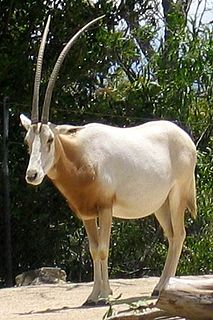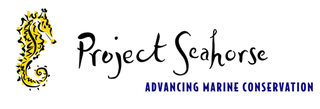Related Research Articles

London Zoo aka ZSL London Zoo or London Zoological Gardens is the world's oldest scientific zoo. It was opened in London on 27 April 1828, and was originally intended to be used as a collection for scientific study. In 1831 or 1832, the animals of the Tower of London menagerie were transferred to the zoo's collection. It was opened to the public in 1847. Today, it houses a collection of 673 species of animals, with 19,289 individuals, making it one of the largest collections in the United Kingdom. The zoo is sometimes called Regent's Zoo.
The Zoological Society of London (ZSL) is a charity devoted to the worldwide conservation of animals and their habitats. It was founded in 1826. Since 1828, it has maintained the London Zoo, and since 1931 Whipsnade Park.

ZSL Whipsnade Zoo, formerly known as Whipsnade Wild Animal Park, is a zoo and safari park located at Whipsnade, near Dunstable in Bedfordshire, England. It is one of two zoos that are owned by the Zoological Society of London (ZSL), a charity devoted to the worldwide conservation of animals and their habitats.

The scimitar oryx, also known as the scimitar-horned oryx and the Sahara oryx, is a Oryx species that was once widespread across North Africa. In 2000, it was declared extinct in the wild on the IUCN Red List.

Sir Paul Patrick Gordon Bateson, was an English biologist with interests in ethology and phenotypic plasticity. Bateson was a professor at the University of Cambridge and served as president of the Zoological Society of London from 2004 to 2014.

The North Carolina Zoo is a zoo in Asheboro, North Carolina, housing 1,800 animals of more than 250 species, primarily representing Africa and North America. It is one of two state-supported zoos in the United States, with the other being the Minnesota Zoo. With 500 acres (2.0 km2) developed, it is the world's largest natural habitat zoo. The North Carolina Zoo is a part of the North Carolina Department of Natural and Cultural Resources.

Paignton Zoo is a zoo in Paignton, Devon, England. The zoo is part of South West Environmental Parks Ltd which is owned by the charity Wild Planet Trust, formerly known as the Whitley Wildlife Conservation Trust. The charity also runs Newquay Zoo in Newquay, Cornwall, and ran Living Coasts in Torquay, Devon until its closure in 2020.

The British and Irish Association of Zoos and Aquariums (BIAZA) is a registered charity and the professional body representing over 100 zoos and aquariums in Britain and Ireland.

A zoo is a facility in which animals are housed within enclosures, cared for, displayed to the public, and in some cases bred for conservation purposes.

The Mary River turtle is an endangered short-necked turtle that is endemic to the Mary River in south-east Queensland, Australia. Although these turtles were known to inhabit the Mary River for nearly 30 years, it was not until 1994 that they were recognised as a new species. There has been a dramatic decrease in their population due to low reproduction rates and an increase of depredation on nests.

Wildwood Discovery Park now known as the Wildwood Trust, is a woodland discovery park in Herne, near Canterbury Kent, England. It features over fifty species of native British animals such as deer, badgers, wild boar, wolves and brown bear. It is located on the main road A291 between Herne Bay and Canterbury.

Niabi Zoo is a public Zoological Park in Coal Valley, Illinois, serving the Quad Cities Area. This 40 acre zoo is nestled inside its 287 acre forest preserve. The exploration of this picturesque setting guides guests through the discovery of more than 600 animals representing nearly 200 animal species from around the world. Niabi Zoo is open for general admission April–October annually and offers robust education and outreach programs year round.

Newquay Zoo is a zoological garden located within Trenance Leisure Park in Newquay, England. The zoo was opened in Cornwall on Whit Monday, 26 May 1969 by the local council. It was privately owned by Mike Thomas and Roger Martin from 1993 until 2003. In August 2003 Stewart Muir became the new Director and the zoo became part of the Whitley Wildlife Conservation Trust, alongside Paignton Zoo and Living Coasts. The zoo is part of a registered charity, and was awarded various South West and Cornwall 'Visitor Attraction of The Year' and 'Sustainable Tourism' awards for excellence in 2006, 2007 and 2008. Newquay Zoo is now run as part of the Wild Planet Trust, the new name for the Whitley Wildlife Conservation Trust.

The Red List Index (RLI), based on the IUCN Red List of Threatened Species, is an indicator of the changing state of global biodiversity. It defines the conservation status of major species groups, and measures trends in extinction risk over time. By conducting conservation assessments at regular intervals, changes in the threat status of species in a taxonomic group can be used to monitor trends in extinction risk. RLIs have been calculated for birds and amphibians, using changes in threat status for species in each of the groups.

The EDGE of Existence programme is a research and conservation initiative that focuses on species deemed to be the world’s most "Evolutionarily Distinct and Globally Endangered" (EDGE). Developed by the Zoological Society of London (ZSL), the programme aims to raise awareness of these species, implement targeted research and conservation actions to halt their decline, and to train in-country conservationists to protect them.

21st Century Tiger raises funds for wild tiger conservation projects. It was formed in 1997 as a partnership between the Zoological Society of London (ZSL), Global Tiger Patrol (GTP) and Tusk Force so that the three groups could collaborate, rather than compete, in raising money for tigers in the UK. The two current members of the coalition are ZSL and Dreamworld Wildlife Foundation (DWF). Based in offices provided by ZSL in Regent's Park, London, and with administration funded by a sponsor, it is able to spend 100% of funds raised on tiger projects. 21st Century Tiger is one of the top seven contributors to tiger conservation worldwide and since its inception it has provided over £2 million to over 70 tiger projects in seven countries.
Gordon McGregor Reid PPFLS was Director General and Chief Executive of the North of England Zoological Society, popularly known as Chester Zoo. He stepped down in 2010. The North of England Zoological Society is an independent charity for conservation, education and science. It is also one of the leading wildlife attractions in the UK, receiving well over one million paying guests each year.

Project Seahorse is a marine conservation organization committed to the conservation and sustainable use of coastal marine ecosystems in general, and seahorses in particular. It is based at the Institute for the Oceans and Fisheries in Canada, and Zoological Society of London in the UK.

Joan Beauchamp Procter was a notable British zoologist, internationally recognised as an outstanding herpetologist. She worked initially at the British Museum and later for the Zoological Society of London, as the first female Curator of Reptiles at London Zoo. Her short life was afflicted by chronic ill-health, but she undertook substantial taxonomic work and made significant innovative contributions to veterinary practice and zoo displays. She also wrote scientific and popular zoological articles, including early accounts of the behaviour of captive Komodo dragons.